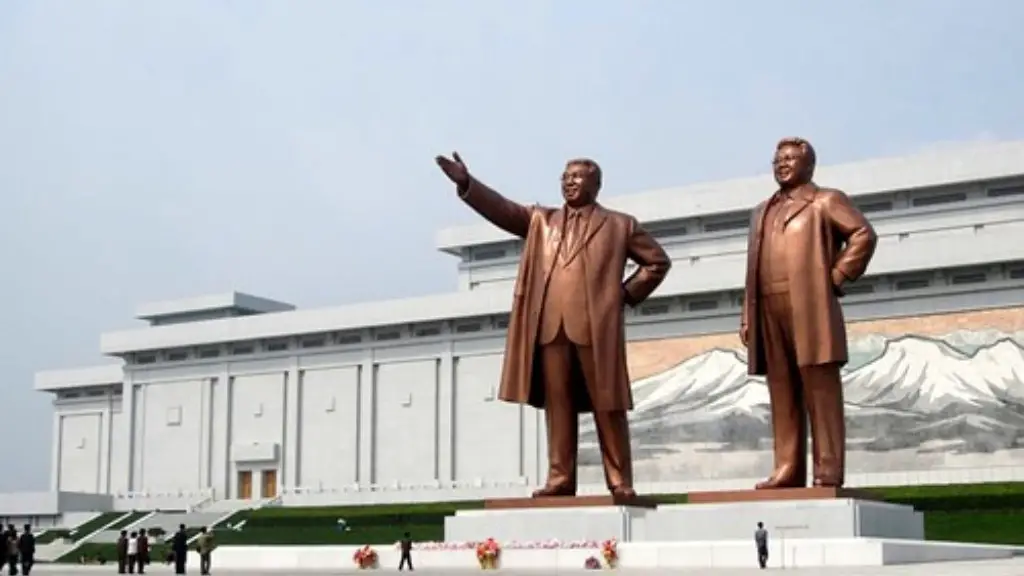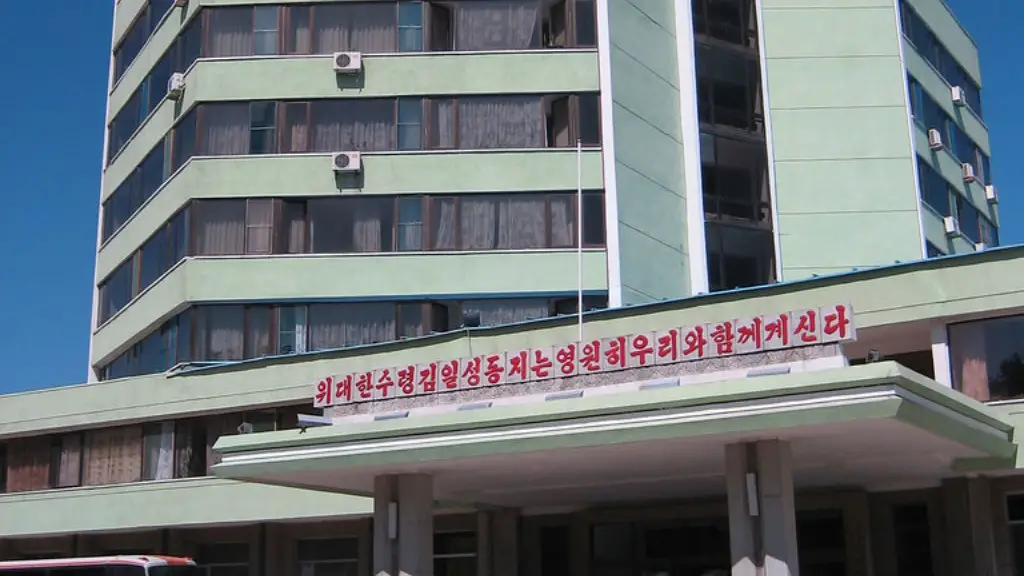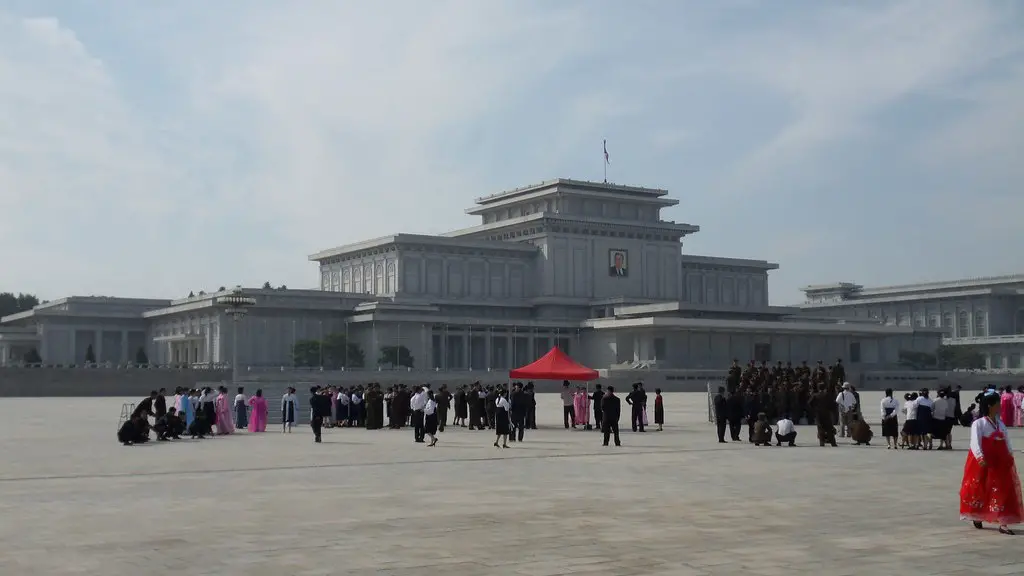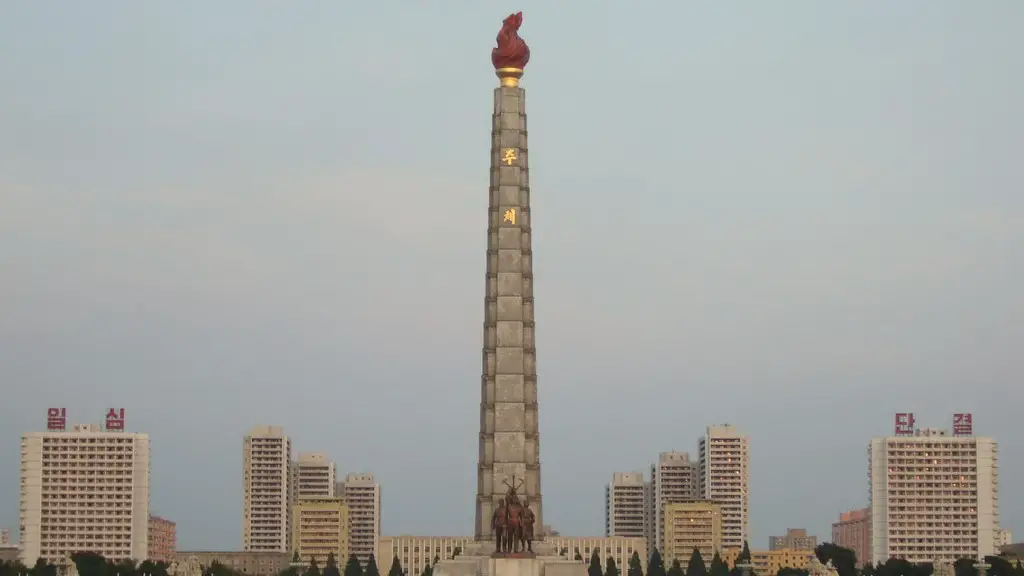Geopolitical Situation
North Korea is a hermit kingdom that has been under the rule of the Kim family for over 70 years and this isolationist regime is often seen as a threat to global security. North Korea is an authoritarian state and its foreign policy is characterized by a policy of non-compromise. North Korea has nuclear weapons and demands the right to possess them, while other countries are opposed to their proliferation. North Korea is isolated from the international community and its economy is largely reliant on aid from China and South Korea. In addition, North Korea is involved in a number of international disputes and has threatened military action against neighboring countries, which has added to its reputation as an unpredictable and dangerous state.
North Korea has often been referred to as a “rogue” nation and it is considered to be one of the least democratic countries in the world. It is also one of the poorest, with an estimated GDP of around $40 billion, according to the World Bank. Despite its poverty and international isolation, North Korea has managed to maintain a strong nuclear weapons program, which gives it leverage in the region. In addition, North Korea has repeatedly refused to cooperate with the United Nations and has rejected international sanctions, making it one of the most recalcitrant states in the world.
Most experts agree that the primary goal of North Korea is to remain an independent nation, which it sees as its only way to maintain the status quo and continue its rule over the population. This is why the North Korean government has insisted on the right to possess nuclear weapons, as they provide them with a deterrent against foreign intervention. North Korea also seeks to be seen as an equal among the major powers in the world and is unwilling to be seen as a subordinate of any other nation. The North Korean government may also be seeking to use its position of strength to extract concessions from the international community in exchange for its cooperation, such as financial aid or diplomatic recognition.
Military Capabilities
North Korea is one of the most militarized nations in the world, with its military estimated to be around 1.2 million strong. It is thought to possess a large stockpile of conventional weapons, as well as an arsenal of chemical and biological weapons. In addition, North Korea is believed to possess an intercontinental ballistic missile (ICBM) capability, with the capacity to deliver nuclear weapons anywhere in the world. These military capabilities give North Korea a measure of deterrence against its adversaries, as it could launch a devastating counterattack if provoked.
North Korea is also believed to have the fourth-largest active nuclear weapons program in the world. It is estimated that it currently possesses around 60 nuclear warheads, with an additional 20-30 plutonium warheads believed to be in production. It is thought that the North Korean regime may have up to 10 additional nuclear bombs in reserve, which would give them a total of around 90 warheads. While North Korea has not tested a nuclear weapon since 2017, it has continued to develop its nuclear capabilities and has expanded its nuclear program in recent years.
In addition to its nuclear weapons, North Korea is known to possess a substantial stockpile of short-range ballistic missiles. It is believed that North Korea has around 200 of these missiles, which are capable of delivering conventional, chemical, and possibly even nuclear weapons to targets within 500 kilometers. These missiles are believed to be highly accurate and are capable of striking targets within seconds. This capability gives North Korea a powerful deterrent to any foreign aggression.
Foreign Relations
North Korea’s foreign policy is one of self-reliance and non-interference, and it has historically been unwilling to cooperate with other countries. The Kim regime is highly suspicious of any foreign involvement in its affairs and has refused to cooperate on any international issues, such as nuclear non-proliferation and disarmament negotiations. North Korea has also sought to remain outside the influence of other countries, such as China, Japan, South Korea, and the United States, which it perceives as hostile. As a result, North Korea has relatively few diplomatic and economic ties with the international community, and it is largely isolated from the world.
North Korea’s relations with the United States have been especially strained, as the United States has been a vocal critic of North Korea’s nuclear program and has imposed economic sanctions against the country. The North Korean government has also accused the United States of leading a campaign of “maximum pressure” to force it to abandon its nuclear program, something that the United States has denied. Despite this tension, the United States and other countries have engaged in negotiations with North Korea on the issue of denuclearization, though these talks have yet to yield any tangible results.
Additionally, North Korea has often sought to engage with its adversaries in order to gain diplomatic recognition and maintain a degree of influence in the region. North Korea has sought to expand its negotiations with countries such as China and Russia, with the aim of gaining their support for its agenda. It has also sought to engage with South Korea in order to improve cross-border ties. These efforts have been met with limited success, however, due to North Korea’s failure to cooperate on certain issues.
Diplomatic Opportunties
In recent years, there has been a renewed effort from both the international community and the North Korean government to address the long-standing nuclear crisis. The United States and North Korea have held a number of high-level talks, with the aim of reaching an agreement on denuclearization and the normalization of relations. These talks have been positive in that they have at least resulted in a degree of dialogue, however there have been no major breakthroughs.
In addition, there have been diplomatic overtures from North Korea towards South Korea. North Korea has agreed to engage in normalization talks with South Korea, while also opening up a liaison office at the border. This has resulted in the loosening of some of the travel restrictions between the two countries, and is seen as a positive step in improving relations.
However, it is important to note that any talks between North Korea and the international community have yet to yield any real progress. Despite these talks, North Korea continues to develop its nuclear arsenal, and it appears unwilling to negotiate in good faith. As such, it is unclear when or if any real progress can be made in resolving the crisis.
Political Change
In the past few years, there have been signs of some possible political changes in North Korea. The death of the long-time leader Kim Jong-il and the rise of his son Kim Jong-un provides an opportunity for a new regime to take power in Pyongyang. While Kim Jong-un appears to have adopted a more conciliatory attitude towards the international community and has engaged in a number of diplomatic overtures, it remains to be seen whether he can bring significant change to the country.
When looking at North Korea’s situation, it is important to remember that the country is one of profound poverty and human rights abuses, and any potential political change must prioritize addressing these issues. There must be a focus on improving the human rights situation in North Korea and providing more economic opportunity for its people. Additionally, it is important for any political reforms to go beyond the top leadership, and to involve the people in the process of reform.
The situation in North Korea is a complex one, and it will require a concerted effort from all countries involved to bring about any sort of meaningful change. While it is difficult to predict what the future holds for North Korea, it is certain that the country will remain a major foreign policy concern in the years to come.
Conclusion
Overall, what North Korea ultimately wants from the international community is recognition of its sovereignty and the right to pursue its own interests without interference from the West. In addition, North Korea seeks to have its nuclear weapons program respected by the international community and to have some degree of diplomatic engagement with its neighbors. North Korea also seeks to gain concessions from other countries in exchange for cooperation on certain issues. While the North Korean government has taken some small steps towards reform, it remains to be seen whether the country can create a more stable and open society in the years to come.




